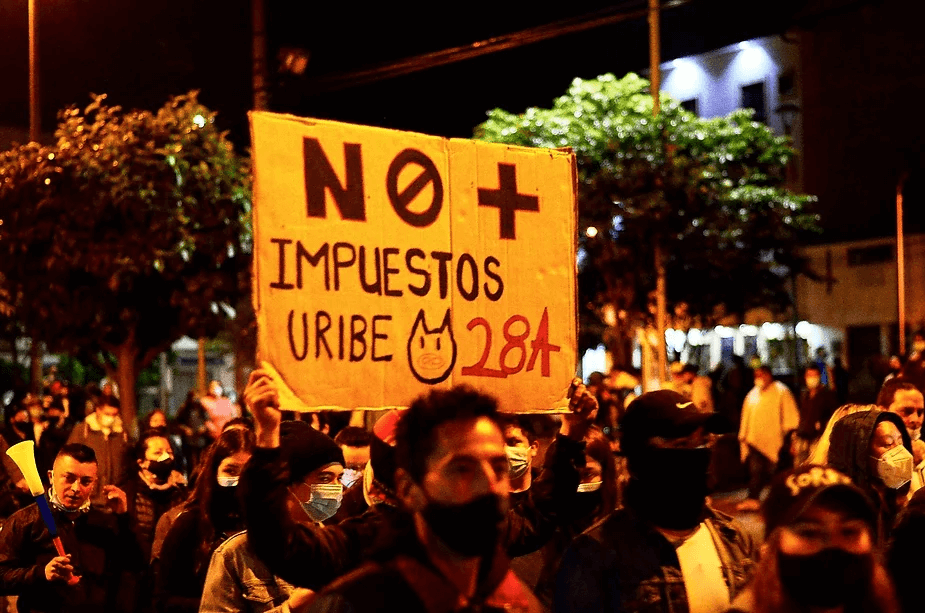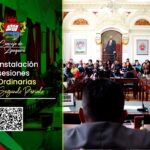Protesters march through the streets of Zipaquirá, Colombia.
A meeting between Colombian President Iván Duque and members of the National Strike Committee has reportedly concluded without an agreement being struck regarding how to end the unrest currently gripping the country.
The protests, now entering their third week, were originally sparked by a tax reform proposal put forward by Duque’s administration that would have broadened the applicability of income tax and the value-added tax (VAT), something the president insisted was necessary for the country’s financial well-being. Although widespread outrage over the proposal led Duque to withdraw it from consideration and prompted Finance Minister Alberto Carrasquilla to resign, demonstrations have continued. The protesters, comprising a variety of groups ranging from striking workers to indigenous activists, have made clear they have other grievances pertaining to such issues as health reform, the minimum wage, and the forced eradication of coca crops.
The National Strike Committee made these and other issues part of their agenda for the May 10 meeting with Duque, which was part of a promised effort by the president to meet with activists and opposition politicians regarding how to bring the chaotic situation to a conclusion. However, although Duque managed to bring the protest leaders to the table, Committee members expressed disappointment with the results.
“We didn’t come to an agreement because there was no empathy on the part of the government with the reasons for this national strike,” said Francisco Maltés, president of the Central Union of Workers, one of Colombia’s largest labor organizations.
In addition to feeling their policy concerns had not been adequately addressed, the activists expressed disappointment in Duque’s perceived attitude toward police responses to the protests, which have been criticized in Colombia and internationally as heavy-handed.
“President Duque’s speech was complacent about the excessive use of the security services,” said student leader Jennifer Pedraza.
“There has been no empathy with the victims of the violence exercised disproportionately against demonstrators who have protested peacefully,” said Maltés.
With negotiations bearing no fruit, the Committee announced that the strike would continue, with another round of protests planned for Wednesday.
As of Friday, Colombia’s ombudsman has reported twenty-seven deaths in the protests. According to some human rights groups, the actual death toll is likely much higher.










